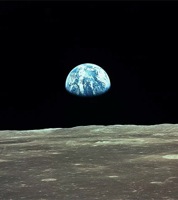Difference between revisions of "Exploration"
m (Text replacement - "http://" to "https://") |
|||
| (One intermediate revision by the same user not shown) | |||
| Line 3: | Line 3: | ||
==Etymology== | ==Etymology== | ||
Latin explorare, from ex- + plorare to cry out | Latin explorare, from ex- + plorare to cry out | ||
| − | *Date: [ | + | *Date: [https://www.wikipedia.org/wiki/16th_Century 1585] |
==Definitions== | ==Definitions== | ||
*1 a : to investigate, [[study]], or [[analyze]] : look into <explore the [[relationship]] | *1 a : to investigate, [[study]], or [[analyze]] : look into <explore the [[relationship]] | ||
| Line 13: | Line 13: | ||
---- | ---- | ||
| − | <center>For lessons on the [[topic]] of '''''[[Exploration]]''''', follow [ | + | <center>For lessons on the [[topic]] of '''''[[Exploration]]''''', follow [https://nordan.daynal.org/wiki/index.php?title=Category:Exploration '''''this link'''''].</center> |
==Description== | ==Description== | ||
| − | '''Exploration''' is the [[act]] of searching or traveling a terrain (including [[space]], see space exploration) for the [[purpose]] of [[discovery]] of resources or [[information]]. Exploration occurs in all non-sessile [[animal]] species, including [[humans]]. In human [[history]], its peak is seen during the [ | + | '''Exploration''' is the [[act]] of searching or traveling a terrain (including [[space]], see space exploration) for the [[purpose]] of [[discovery]] of resources or [[information]]. Exploration occurs in all non-sessile [[animal]] species, including [[humans]]. In human [[history]], its peak is seen during the [https://en.wikipedia.org/wiki/Age_of_Discovery Age of Discovery] for Europe's contact with the rest of the world, and Major explorations after the Age of Discovery for [[scientific]] exploration in the modern era. |
The term may also be used [[metaphorically]], for example persons may speak of exploring the [[internet]], [[sexuality]], etc. In scientific [[research]], exploration is one of three [[purposes]] of empirical research (the other two being description and explanation). Exploration is the attempt to develop an initial, rough [[understanding]] of some [[phenomenon]]. | The term may also be used [[metaphorically]], for example persons may speak of exploring the [[internet]], [[sexuality]], etc. In scientific [[research]], exploration is one of three [[purposes]] of empirical research (the other two being description and explanation). Exploration is the attempt to develop an initial, rough [[understanding]] of some [[phenomenon]]. | ||
Latest revision as of 01:03, 13 December 2020
Etymology
Latin explorare, from ex- + plorare to cry out
- Date: 1585
Definitions
- 1 a : to investigate, study, or analyze : look into <explore the relationship
- between social class and learning ability> —sometimes used with indirect questions <to explore where ethical issues arise — R. T. Blackburn>
- b : to become familiar with by testing or experimenting <explore new cuisines>
- 2 : to travel over (new territory) for adventure or discovery
- 3 : to examine especially for diagnostic purposes <explore the wound>
Description
Exploration is the act of searching or traveling a terrain (including space, see space exploration) for the purpose of discovery of resources or information. Exploration occurs in all non-sessile animal species, including humans. In human history, its peak is seen during the Age of Discovery for Europe's contact with the rest of the world, and Major explorations after the Age of Discovery for scientific exploration in the modern era.
The term may also be used metaphorically, for example persons may speak of exploring the internet, sexuality, etc. In scientific research, exploration is one of three purposes of empirical research (the other two being description and explanation). Exploration is the attempt to develop an initial, rough understanding of some phenomenon.
